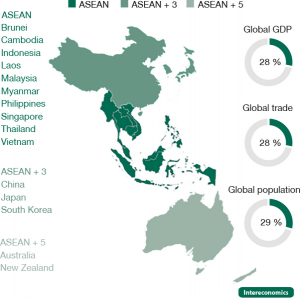 The Business Forum plenary discussion at the World Halal Summit 2015 (WHS 2015) this morning discussed the risk factors and consumer misperceptions faced by Halal food suppliers in the modern market.
The Business Forum plenary discussion at the World Halal Summit 2015 (WHS 2015) this morning discussed the risk factors and consumer misperceptions faced by Halal food suppliers in the modern market.
Habib M’Nasria, Director of Quality Control at McDonald’s International spoke about the lengths in which a major player in the fast food market such as McDonald’s go to ensuring the integrity of their Halal products. This includes strict monitoring of supply chain processes to ensure integrity of Halal certified food products. “Our products are Halal and that is a fact,” he said.
For some, Islamophobia defines the European public’s perception on Halal.
These practices are meant to deliver quality products, which will meet the religious obligations of Muslim consumers. “Halal products will also benefit non-Muslim consumers who will be purchasing a wholesome, sustainable and responsibly produced product,” added Koen.Meanwhile, the second plenary discussion of the morning discussed the Muslim-friendly travel sector, and the huge opportunities it presents. Among the panellists were Fazal Bahardeen, CEO of CrescentRating and Safdar Khan, Group Country Manager of MasterCard Asia Pacific.
Fazal Bahardeen said that at present the 90 per cent of Muslims travel on business and leisure, and the Muslim travel market is currently worth about US$140 billion a year. By 2020, it is estimated to be worth in excess of US$200 billion.
“This present tremendous opportunities to players in various travel related industries, who see the commercial value of increasing Muslim travellers,” Fazal adds.
Among these companies include the global company MasterCard. Safdar Khan said that MasterCard is now actively branching into Muslim friendly card instruments such as debit cards designed specifically for Hajj pilgrims.
“Islamic banking is now a key focus area for MasterCard,” said Safdar during the forum.
It is worth noting that as Muslims cross borders more frequently and interact with other cultures and norms, their worldviews become more varied. A case in point is the F&B industry where demand for Halal food is not necessarily driven by ethnic foods such curry and kebabs, which are synonymous with Halal fare.
“Worldly and affluent Muslim travellers are now keen to sample things like steaks and European cuisine for example” says Jumaatun Azmi, Managing Director of KesehDia Sdn. Bhd who moderated the discussion.



